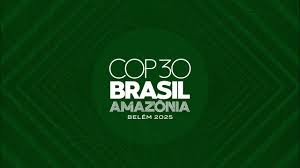COP30: Leaders Call for Roadmap to End Fossil Fuels, Boost Climate Finance, and Protect Forests – Indian PSU
World leaders gathered in Belém, the gateway to the Amazon, for the COP30 Climate Summit, calling for a clear roadmap to end fossil fuel dependence and strengthen global cooperation on climate action.
Opening the summit, Brazilian President Luiz Inácio Lula da Silva said, “The decisions we make regarding the energy sector will determine our success or failure in the fight against climate change. The Earth can no longer sustain the development model based on the intensive use of fossil fuels that has prevailed for the past 200 years.”
He reminded delegates that 75% of global greenhouse gas emissions come from energy production and consumption, urging countries to show courage in transitioning towards renewables.
Lula highlighted that renewable energy use has tripled in the past decade, and in the first half of 2025, renewables became the largest single source of global electricity generation, surpassing coal. With solar and wind power now cheaper than fossil fuels and battery costs falling by 90%, he urged countries to honor international commitments to triple renewable capacity and double energy efficiency by 2030.
Launching the Belém Commitment on Sustainable Fuels, Lula proposed a goal to quadruple the global use of sustainable fuels by 2035, while advocating for debt-for-climate swaps to help developing nations finance their transitions.
The COP30 Declaration on Sustainable Fuels stressed the importance of adopting a multi-pathway approach to achieve carbon neutrality, urging each country to take ambitious domestic actions aligned with their Nationally Determined Contributions (NDCs).
The discussions also drew from the COP28 Global Stocktake in Dubai, which urged nations to transition away from fossil fuels in a “just, orderly, and equitable manner,” and reduce emissions from transport through clean vehicle deployment.
The 2024 G20 Rio Declaration and 2023 Delhi Declaration were also cited, reaffirming commitments to sustainable fuels, hydrogen markets, and global biofuel alliances to accelerate decarbonization in hard-to-abate sectors.
India’s Position
India’s Ambassador to Brazil, H.E. Dinesh Bhatia, welcomed the Tropical Forests Forever Fund (TFFF) as a major global step toward forest preservation, confirming India’s participation as an observer.
He highlighted India’s progress, stating that between 2005 and 2020, India reduced its emission intensity of GDP by 36%, and that non-fossil fuel-based energy now accounts for 50% of total installed capacity — achieving NDC targets five years ahead of schedule.
“India is now the world’s third-largest producer of renewable energy,” Bhatia said, adding that the International Solar Alliance, with over 120 member countries, continues to promote affordable solar energy and South-South collaboration.
Key Priorities for COP30 Negotiations
The summit identified three major priorities for this year’s negotiations:
- Fossil Fuels: Setting a definitive global roadmap for an equitable transition away from fossil fuels.
- Climate Finance: Ensuring adequate and accessible funding for developing nations to achieve mitigation and adaptation goals.
- Protecting Forests: Strengthening conservation and sustainable management of tropical and biodiversity-rich forests.
As the impacts and costs of inaction escalate, negotiators and the COP30 Presidency will focus over the next two weeks on the Global Goal on Adaptation, Just Transition, and other critical elements under the Action Agenda to accelerate progress toward the 1.5°C target.
The writer of this article is Dr. Seema Javed, an environmentalist & a communications professional in the field of climate and energy


